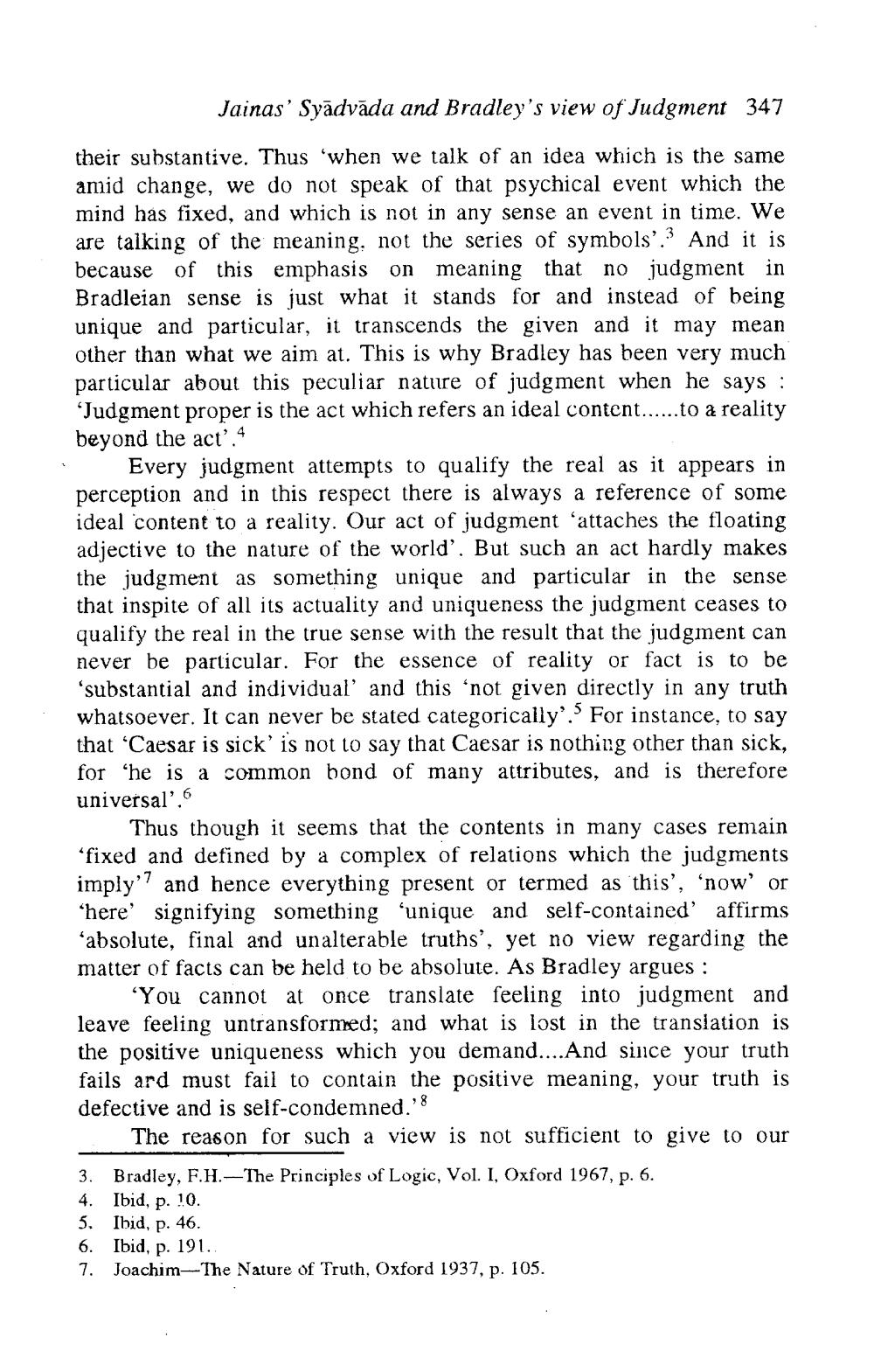________________
Jainas' Syādvāda and Bradley's view of Judgment 347
their substantive. Thus 'when we talk of an idea which is the same amid change, we do not speak of that psychical event which the mind has fixed, and which is not in any sense an event in time. We are talking of the meaning, not the series of symbols'.3 And it is because of this emphasis on meaning that no judgment in Bradleian sense is just what it stands for and instead of being unique and particular, it transcends the given and it may mean other than what we aim at. This is why Bradley has been very much particular about this peculiar nature of judgment when he says: 'Judgment proper is the act which refers an ideal content......to a reality beyond the act'.4
Every judgment attempts to qualify the real as it appears in perception and in this respect there is always a reference of some ideal content to a reality. Our act of judgment 'attaches the floating adjective to the nature of the world'. But such an act hardly makes the judgment as something unique and particular in the sense that inspite of all its actuality and uniqueness the judgment ceases to qualify the real in the true sense with the result that the judgment can never be particular. For the essence of reality or fact is to be 'substantial and individual' and this 'not given directly in any truth whatsoever. It can never be stated categorically'.5 For instance, to say that 'Caesar is sick' is not to say that Caesar is nothing other than sick, for he is a common bond of many attributes, and is therefore universal'.6
Thus though it seems that the contents in many cases remain 'fixed and defined by a complex of relations which the judgments imply' and hence everything present or termed as this', 'now' or 'here' signifying something 'unique and self-contained' affirms 'absolute, final and unalterable truths', yet no view regarding the matter of facts can be held to be absolute. As Bradley argues :
'You cannot at once translate feeling into judgment and leave feeling untransformed; and what is lost in the translation is the positive uniqueness which you demand....And since your truth fails and must fail to contain the positive meaning, your truth is defective and is self-condemned.
98
The reason for such a view is not sufficient to give to our
3. Bradley, F.H.-The Principles of Logic, Vol. I, Oxford 1967, p. 6.
4. Ibid, p. 10.
5. Ibid, p. 46.
6. Ibid, p. 191..
7.
Joachim-The Nature of Truth, Oxford 1937, p. 105.




